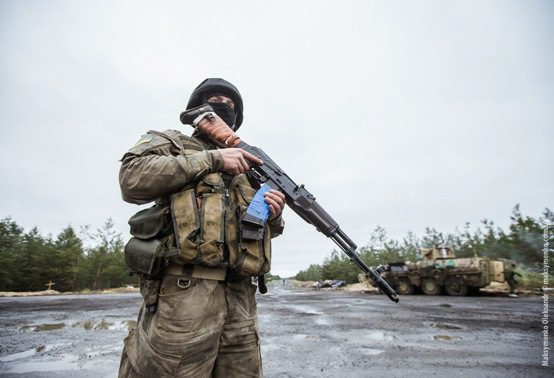Ukraine and “Credibility”

Jeremy Shapiro criticizes the argument for arming Ukraine, and gets in a shot against the “credibility” argument at the same time:
The report authors counter that if the United States does not stand up to Russia in Ukraine, the Putin regime will be emboldened to make similar mischief all over Europe and beyond. This is the familiar credibility argument that gave us the war in Vietnam, among other misadventures. In fact, U.S. credibility is not enhanced by making bluffs that we will not ultimately fulfill or by embarking on wasting wars that we do not need [bold mine-DL].
In any case, Ukraine is a unique situation, both for the Russians and for the United States. It is culturally and geographically supremely important to the Russians and yet for the United States it has no intrinsic geopolitical importance and is not a treaty ally [bold mine-DL]. The Russians would be foolish to judge U.S. credibility in responding to provocations in areas of greater importance to the United States on the basis of its non-military response to Ukraine.
It is not surprising that the authors of the report invoked the “credibility” argument to support their demand that the U.S. supply Ukraine with weapons. This is what hawks usually do when the U.S. obviously has little or nothing at stake in a given conflict. Since they can’t credibly argue that important U.S. interests are at risk in such a conflict, they have to link the conflict to places where there may be more important U.S. interests in order to lure policymakers into endorsing deeper involvement in a place of little or no importance to America. Because even the hawks know that Ukraine itself doesn’t matter very much to the U.S., they have to tie events there to potential problems that might arise elsewhere later. Pifer and Talbott took this position in their op-ed last week:
If the West does not push back, it could face challenges, even armed challenges, from Russia elsewhere that will require far more costly responses.
That sounds ominous, but there is not much reason to think that this would happen. It is far more likely that Russia would respond much more angrily to an attempt to “push back” than it would to a less confrontational policy. Hawks have consistently misjudged how Russia would respond to Western initiatives in its vicinity over the last decade. Proposed NATO expansion was met with intense opposition that proponents of expansion did not anticipate or dismissed as unlikely or irrelevant. Deliberate efforts by some European governments to pull Ukraine out of Moscow’s orbit triggered very strong reactions from Moscow that supporters of the Eastern Partnership definitely didn’t foresee and for which they were completely unprepared. The overthrow of Yanukovych led directly to Russian seizure of Crimea and resulted in Moscow’s ongoing support for anti-government forces in the east, which Western boosters of the protests against Yanukovych never even imagined as a possibility. Each time hawks have ignored Russian warnings and dismissed the possibility of a severe Russian response, and each time they have been taken by surprise when Russia responded severely to Western actions. There is not much reason to think that arming Ukrainian forces with the explicit goal of killing Russians and their Ukrainian proxies will result in a different kind of response.
The core of the Pifer/Talbott argument is that the U.S. needs to help Ukraine impose costs on Russia that are so great that it will discourage Russia from further escalation, but that assumes that Russia will respond to increased casualties by backing down. We know how our government responds to increasing casualties in a conflict, and it does not normally respond by scaling back its involvement or withdrawing its forces. On the contrary, it is common for governments that have committed themselves to conflicts, no matter how unnecessary or foolish they may be, to redouble their efforts and throw more resources at the conflict. Insofar as the Russian government worries about its own “credibility” and its own fear of appearing “weak,” it will react to Western efforts to “push back” with more escalation of its own. That seems even more likely when we remember how much more important Ukraine is to Russia than it is to the U.S. and our allies.
Comments